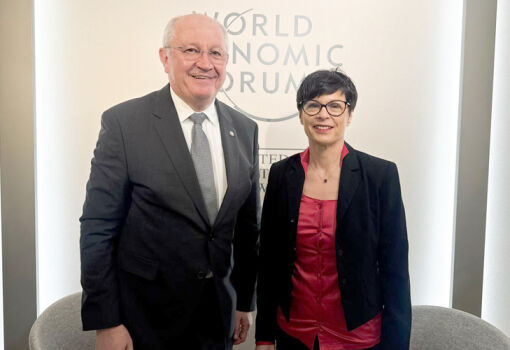
Adrian Gheorghitae
And it’s not because you’re financially illiterate. No one is deceiving you, but – and is not interested in informing you. The banking system owes its profit to the growing income from commission payments (+10% in Q1 2025). And, like any commercial structure, it tries to sell its services at a higher price.
The National Commission on Financial Market (NCFM) has developed a draft law protecting the rights of consumers of financial services. The document is aimed at increasing transparency in relations with consumers and is designed to standardize user terms and conditions. The draft law obliges market participants to ensure comparability of commissions for payment accounts, for their renegotiation and access to payment accounts with basic services.
“Big banks often use various ‘little tricks’ to increase their profits and retain customers,” says Adrian Georgitse, vice chairman of the NCFM. – These tricks can be both quite legal and bordering on unethical behavior. The NCFM is authorized to protect the rights of consumers of financial services, including from making unjustified financial decisions due to bank tricks. The draft law is in line with the country’s commitments made in the process of accession to the EU”.
Banks can use complex formulas to calculate interest on loans and deposits, which can increase the total cost of a loan or reduce the return on a deposit. They may also charge various fees for account maintenance, transfers, cash withdrawals and other transactions, and mislead on terms and conditions by writing them in small print to hide from customers some important conditions affecting the final cost of services.
The ability to compare the terms and conditions of different banks, not to fall for marketing offers, to distinguish between similar terms and conditions is often time-consuming and labor-intensive. “We have provided for this as well,” says the vice chairman. NCFM will develop an online platform with free access, through which it will be possible to compare the fees associated with the payment account charged by different payment service providers and determine the most favorable offers.
The document also introduces the standardization of fee names through a national list of common services that will contain common terms and definitions. Consumers will receive an information document on the fees associated with a payment account before signing a contract and will receive a detailed annual report on the fees paid and interest paid or accumulated free of charge. Then banks will have no need to use complex wording in contracts to hide some important conditions from customers, says Adrian Gheorghitae.
The draft law also provides for a simplified and safe mechanism for changing payment accounts between banks, which will not require significant efforts on the part of the consumer. The receiving bank will be responsible for initiating and managing the process on behalf of the consumer. Banks will be expected to cooperate with each other when transferring an account and clearly inform consumers about the possibility of this service. The fees involved will be fully transparent and banks will be held accountable for any financial losses on account transfers, including unreasonable fees or penalties, the paper hopes.
Adrian Gheorghita, vice chairman of the NCFM, said:
“Surveys of people without bank accounts have shown that 46.4% consider distrust in financial organizations as a significant obstacle. As well as the lack of a set of services adapted to the needs of customers with a modest financial profile. These are people who require transactions for small amounts, fast processing of applications and minimal administrative requirements regarding the necessary documentation to open and use an account.
We envisioned that all consumers, including new consumers, should be guaranteed access to a payment account with basic services and without discrimination. This type of account will allow for all basic transactions such as cash deposits and withdrawals, income, bill payments, or purchases of goods and services. Payment accounts with basic services will be offered free of charge or for a reasonable fee. And for a certain category of financially vulnerable consumers, a number of services related to current accounts will be free of charge”.
According to the World Bank Global Findex Database 2021, the share of account holders among the adult population of the Republic of Moldova in 2021 was 64.3%, which is 20 p. p. higher than in 2017 and about 4 times higher than in 2011. However, compared to other countries in the region, Moldova’s level of account holdings is below the regional average, with only Albania and Armenia registering lower levels. Moldova is 13.5 p.p. below the regional average for Europe and Central Asia (ECA), excluding high-income countries.





